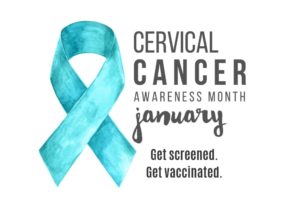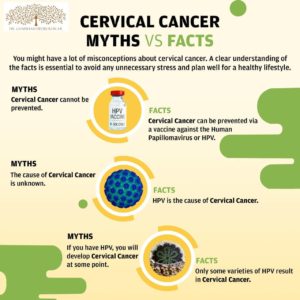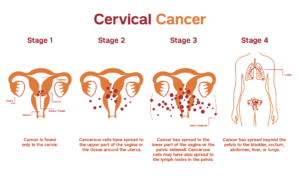There is steps you can take early in life and steps you can take through out your life to prevent cervical cancer:
1. Three HPV vaccines—9-valent HPV vaccine (Gardasil 9, 9vHPV), quadrivalent HPV vaccine (Gardasil, 4vHPV), and bivalent HPV vaccine (Cervarix, 2vHPV)—have been licensed by the U.S. Food and Drug Administration (FDA). All three HPV vaccines protect against HPV types 16 and 18 that cause most HPV cancers.
Gardasil 9 is an HPV vaccine approved by the U.S. Food and Drug Administration and can be used for both girls and boys. This vaccine can prevent most cases of cervical cancer if the vaccine is given before girls or women are exposed to the virus. This vaccine can also prevent vaginal and vulvar cancer.
2. For cancer prevention as well as overall health and wellness through out your life, many experts recommend a plant-based diet that consists primarily of fruits, vegetables, beans and whole grains. These foods contain a variety of beneficial chemical compounds that can be easily incorporated into daily meals. Some examples include:
- Flavonoids – These chemical compounds, which are believed to provide protection against cancer, are found in apples, asparagus, black beans, broccoli, brussels sprouts, cabbage, cranberries, garlic, lettuce, lima beans, onions, soy and spinach.
- Folate – This water-soluble B vitamin has been found to reduce the risk of cervical cancer in women who have HPV. Foods that are rich in folate include avocados, chickpeas, lentils, orange juice, romaine lettuce and strawberries.
- Carotenoids – These valuable sources of vitamin A are found in most fruits, vegetables and beans, and particularly in orange foods such as carrots, sweet potatoes, pumpkin and squash.
While a healthy diet is an important component of an overall cancer prevention plan, it should not be the only component.
Treatment of cervical cancer:
Cervical cancer treatments include surgery, chemotherapy, and radiation therapy. If your doctor says that you have cervical cancer, ask to be referred to a gynecologic oncologist—a doctor who has been trained to treat cancers of a woman’s reproductive system.
Different treatments may be provided by different doctors on your medical team.
- Gynecologic oncologists are doctors who have been trained to treat cancers of a woman’s reproductive system.
- Surgeons are doctors who perform operations.
- Medical oncologists are doctors who treat cancer with medicine.
- Radiation oncologists are doctors who treat cancer with radiation.
You always go with MD specialist in treating any cancer starting with a oncologist who will work you up with further specialists if needed.



